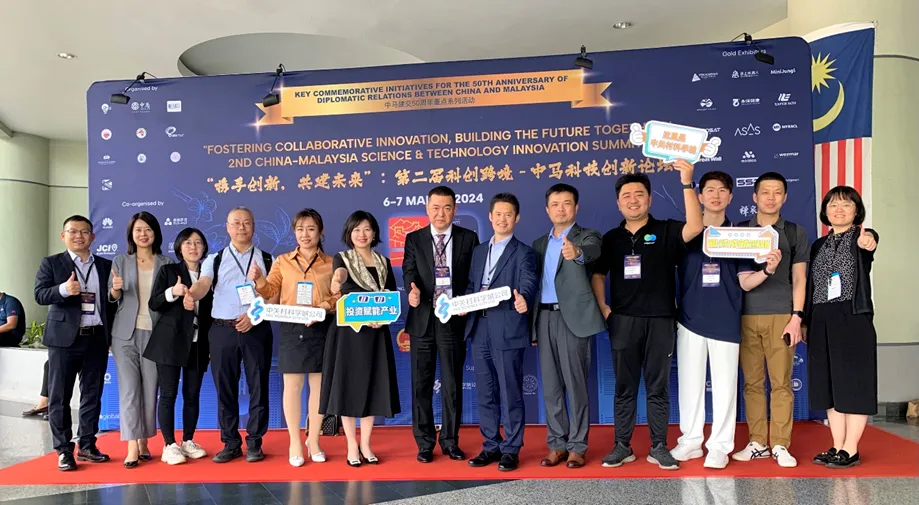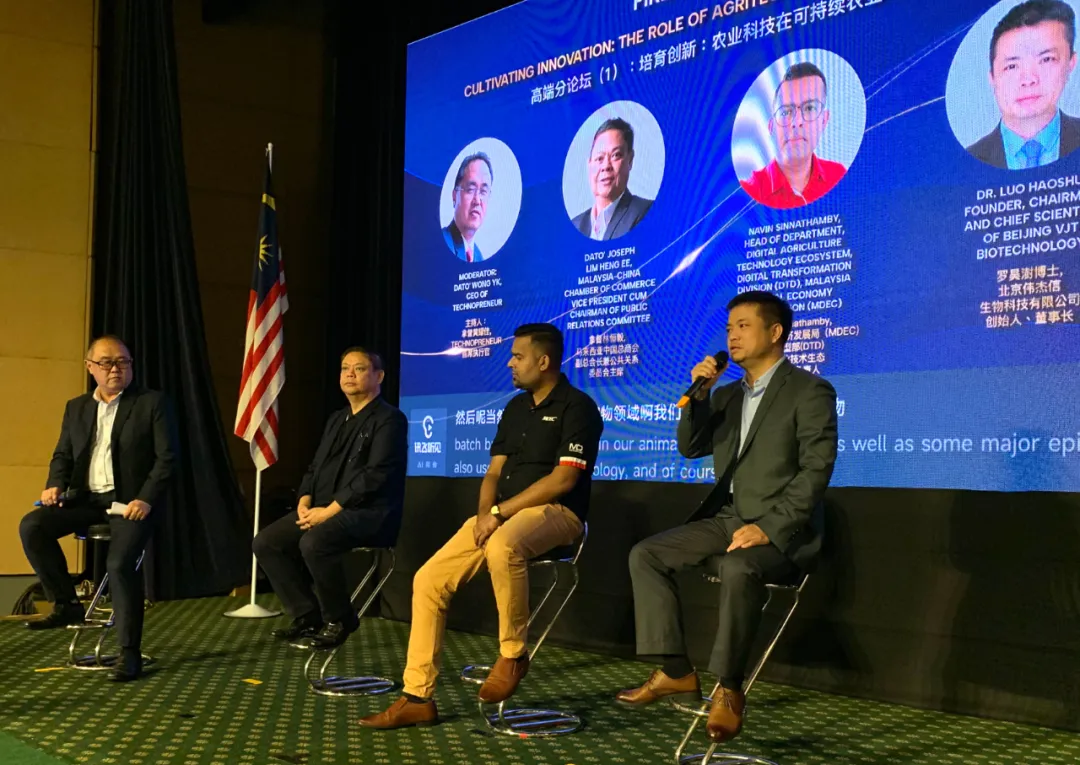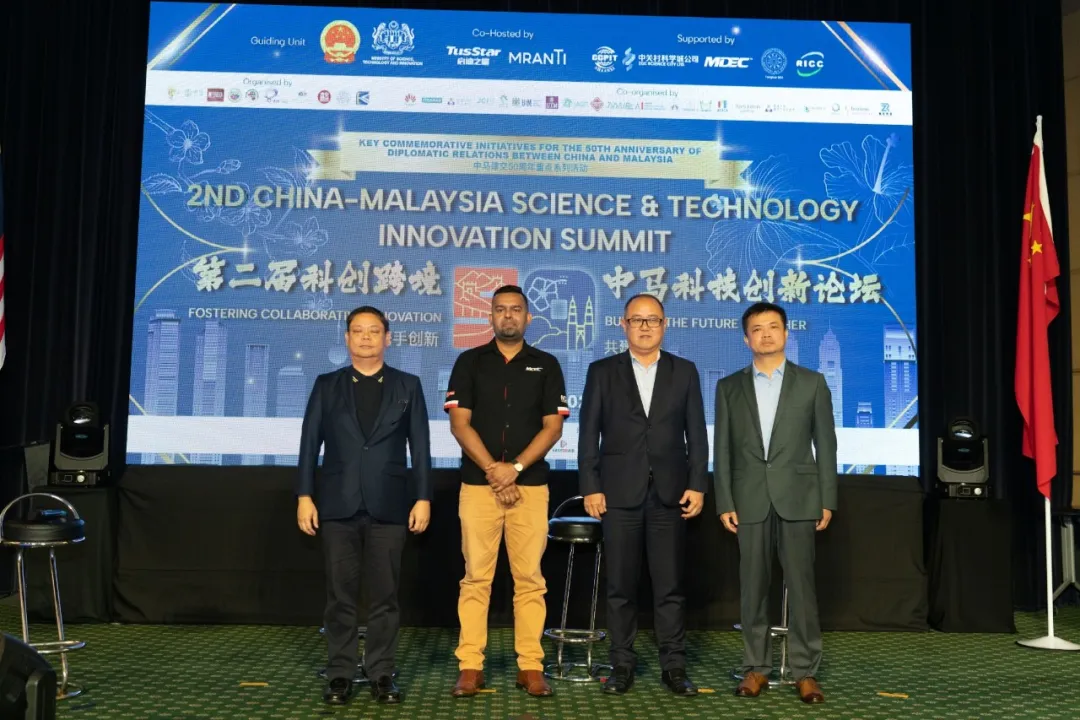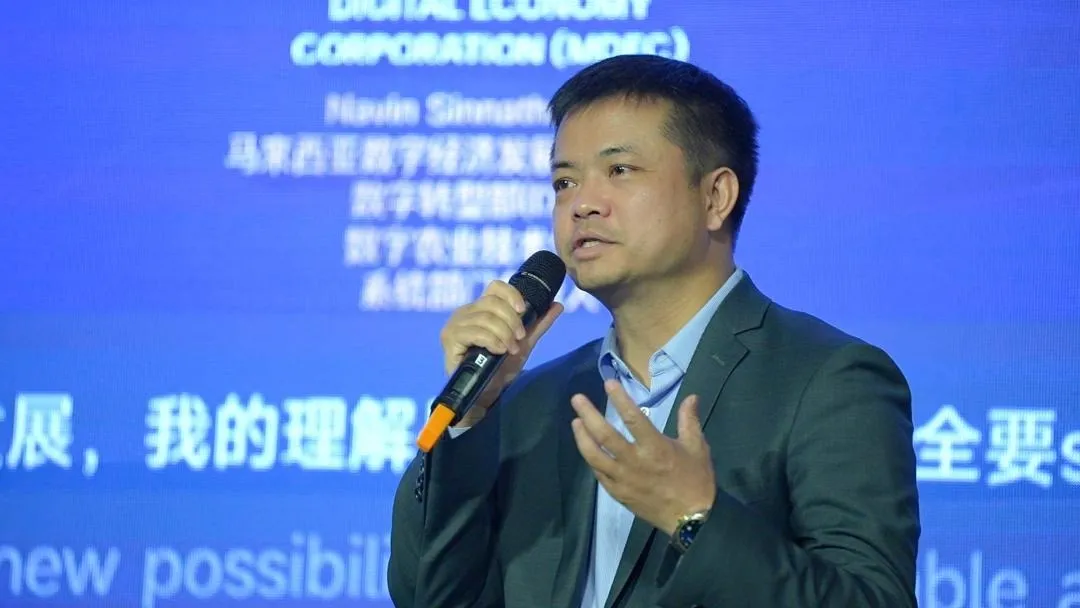
2024 marks the 50th anniversary of diplomatic relations between China and Malaysia. Since their official establishment of diplomatic ties in 1974, the two countries have seen steady growth in their friendly cooperation. To celebrate this significant milestone, the "Second China-Malaysia Cross-Border Innovation Forum" was held from March 6th to 7th at the MRANTI Technology Park in Kuala Lumpur, Malaysia. The forum was guided by the Embassy of the People's Republic of China in Malaysia and the Malaysian Ministry of Science, Technology and Innovation (MOSTI), and was organized by TusStar and the Malaysian Research Accelerator for Technology & Innovation (MRANTI). Co-organizers included the China Council for the Promotion of International Trade (CCPIT) Shaanxi Sub-Council, Zhongguancun Science City Innovation Development Co., Ltd., Malaysia Digital Economy Corporation (MDEC), RCEP Industrial Cooperation Committee, and Tsinghua University Southeast Asia Center.
With the theme "Joint Innovation, Building the Future Together," the forum focused on three key areas: artificial intelligence, agricultural technology, and biomedicine. It featured distinguished guests such as Ouyang Yujing, Ambassador Extraordinary and Plenipotentiary of the People's Republic of China to Malaysia; Chang Lih Kang, Minister of Science, Technology and Innovation; and Rafizi Ramli, Minister of Economy of Malaysia. Under the active organization and planning of Zhongguancun Science City, Beijing VJTBio attended the event as a representative of leading Chinese innovation enterprises, joining Malaysian government experts and industry elites to explore future trends in technological innovation and to open new opportunities for international expansion.
The event was a gathering of luminaries, with many industry giants and authoritative experts in attendance. Keynote addresses were delivered by Rafizi Ramli, Malaysian Minister of Economy; Ouyang Yujing, Chinese Ambassador to Malaysia; Zhang Jinsheng, Executive President of TusHoldings, President of TusHoldings Northeast Asia Headquarters, and Deputy Director of Tsinghua Science Park Management Committee; Dato’ Ts. Dr. Rais Hussin Mohamed Ariff, CEO of MRANTI; and Xu Ningning, Chairman of the RCEP Industrial Cooperation Committee and Chief Business Expert for China-ASEAN. The forum attracted hundreds of participants, including government experts, leading entrepreneurs, innovative researchers, and investors, all converging to discuss and collaborate on future technological advancements.
The conference featured a diverse array of activities and forums, including the opening ceremony, keynote speeches, sub-forums, the 2024 Technology Innovation Matchmaking Conference, and a technology achievements exhibition. As a representative of Zhongguancun Science City enterprises, Dr. Luo Haoshu, founder and chairman of Beijing VJTBio and doctoral advisor at China Agricultural University’s College of Biological Sciences, participated in the high-level dialogue segment of the forum. He engaged with Malaysian government scholars and entrepreneurs in the agricultural technology sector, discussing "Cultivating Innovation: The Role of Agricultural Technology in Sustainable Agriculture."
During the conversation, Dr. Luo delved into topics such as how biotechnology offers new possibilities for sustainable agriculture, the key points in cultivating agricultural technology talent, and the most promising applications of biotechnology. He noted, "China has been increasing its investment in agricultural technology in recent years. Sustainable development relies on support from the government, research institutions, and enterprises. With our dual roles as researchers and entrepreneurs, supported by national policies, we continually explore and apply the most advanced biotechnologies to agricultural scenarios, developing safe, high-quality, and cost-effective protein antibody drugs to address food safety, animal diseases, and epidemic prevention."
On the topic of the most promising biotechnologies, he shared, "Three critical technologies stand out. First, high-end animal protein drugs and mRNA vaccines in the biopharmaceutical field can significantly improve treatment and prevention in livestock, addressing zoonotic diseases. Second, gene editing technology in crop production offers superior varieties, helping achieve the goal of agricultural modernization. Third, synthetic biology in the agro-food sector can facilitate massive industrial advancements in agriculture and food industries."
Dr. Luo concluded by expressing VJTBio's ambition to promote their technologies and products for agricultural breeding, animal disease prevention, and pet treatment in Malaysia, aiming to enhance Sino-Malaysian agricultural technology cooperation.
The forum included a special "Zhongguancun Science City - Biomedicine Precision Matchmaking" session for enterprises from Zhongguancun Science City. VJTBio engaged in face-to-face discussions with over ten Malaysian biomedicine companies, sharing business insights and exploring potential collaboration opportunities, creating a lively and productive atmosphere.
In today's world, the deepening global integration of technology and the drive for innovation continue to be defining themes of our era. Malaysia, as a key nation in Southeast Asia, stands as China's second-largest trade partner within ASEAN and the top source of imports from the region. Malaysia has engaged in extensive cooperation with China in scientific research, innovation, and application. This forum serves as a significant opportunity for Sino-Malaysian exchanges in technological innovation and industry, showcasing the latest achievements in their cooperation and exploring further potential.
As a representative of Chinese technological innovation enterprises, Beijing VJTBio participated in this grand event. The company engaged in close exchanges with industry leaders, strategizing for the future, and demonstrating China's leading-edge capabilities in agricultural biotechnology. This participation not only laid the groundwork for VJTBio’s expansion into overseas markets but also contributed wisdom and strength to the flourishing development of agricultural science and technology between China and Malaysia, and other countries and regions involved in the Belt and Road Initiative with a focus on ASEAN. Together, these efforts aim to create a more prosperous and promising future.



